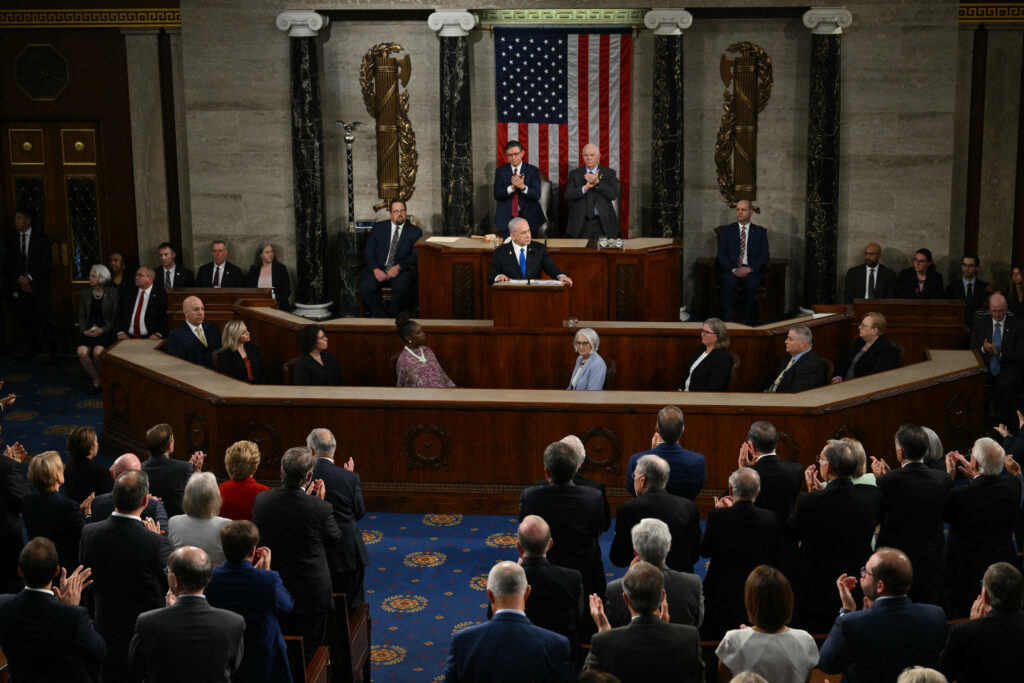Annexing the West Bank: Why We Must Take Netanyahu’s Pre-election Stunt Seriously
- - April 8, 2019

Writing for Haaretz, MEI Senior Research Fellow Victor Kattan notes that Israeli Prime Minister Benjamin Netanyahu’s promise to annex the West Bank would hurt both Israel and Palestine, though in markedly different ways. Annexation by any measure would virtually end all hopes of establishing a Palestinian state.
Prime Minister Benjamin Netanyahu’s interview on Israel’s Channel 12 News that he will extend Israeli sovereignty over the West Bank if re-elected prime minister is more than a publicity stunt. If Netanyahu is re-elected, and if he forms another right-wing government, he will be expected to follow through on his campaign pledge.
What is more, Netanyahu has a friend in the White House, who judging by his policy announcements on Jerusalem and the Golan Heights, would appear to be more than willing to recognize an extension of Israeli sovereignty over parts of the occupied territories, especially if it could be presented as part of a peace deal.
In fact, if past presidential statements provide any indication of what Trump’s “deal of the century” might contain, it is entirely conceivable that it could suggest the annexation of some of the settlements in the Gush Etzion area. Only this time around, given President Mahmoud Abbas’ boycott of the Trump administration, the “peace plan” could provide cover for a Netanyahu government to undertake unilateral measures in the West Bank.
To be sure, there is opposition within Israel to any extension of Israeli sovereignty in the West Bank. In a recently published study, the Commanders for Israel’s Security – a group that describes itself as “a non-partisan movement” made up of “the overwhelming majority of retired IDF generals and their Mossad, Shin Bet and Police equivalents” – warned that even partial annexation could lead to:
“…the termination of security coordination and the dismantling of the PA [Palestinian Authority], leading to the occupation by the IDF of the entire West Bank and the imposition of a Military Administration, possibly culminating in the annexation of the entire area and the absorption of its 2.6 million Palestinian inhabitants.”
In their view, “The damage to Israel’s interests in the security, diplomatic, economic, legal, and domestic spheres will be unprecedented.”
Israel’s ambiguous status in the occupied territories over the last 52 years has served successive Israeli governments well. Israel has had the best of both worlds, by maintaining the fiction that the territories – although disputed – were formally subject to belligerent occupation, and that it would only end that occupation in a comprehensive peace deal with the Palestinians that has yet to materialize, due to disagreement over final status issues.
In the meantime, Israel had to stay put and “manage” the situation. International pressure on Israel to withdraw from the territories has long receded. But annexation would only harm Israel’s interests: it would conclusively demonstrate that the occupation was just a smokescreen, and that Israel was never really interested in peace.
So why have the calls to annex the territories grown louder in recent years and why is Prime Minister Benjamin Netanyahu contemplating rocking the boat now?
The reason appears to be party politics (shoring up his base) and the demographics of the West Bank. Likud’s base is moving further to the right and there are now more Israeli citizens living in Area C of the West Bank than there are Palestinians.
Recall that on 31 December 2017, the Likud Central Committee called for the annexation of the West Bank:
“On the 50th anniversary of the liberation of the regions of Judea and Samaria [the West Bank], including Jerusalem our eternal capital, the Likud Central Committee calls on the Likud’s elected officials to act to allow free construction and to apply the laws of Israel and its sovereignty to all liberated areas of Jewish settlement in Judea and Samaria.”
Those politicians calling for annexation include Miri Regev, Yariv Levin, Gila Gamliel and Ofir Akunis of the Likud. In addition, Naftali Bennett and Ayelet Shaked of the HaYamin Hehadash support annexing the West Bank.
Recently, Akunis told Ynet news that, “we must take courageous, tough, challenging, and difficult decisions vis a vis the international community – first and foremost to apply sovereignty over Area C. Area C has a clear Israeli and Jewish majority and a negligible Palestinian minority.”
Netanyahu knows this, which is why his remarks should be given a heavy dose of scepticism.
Yet words matter. The fact that annexation is openly being supported by Israel’s prime minister is significant. If Netanyahu wins the elections on Tuesday, he will be put under significant pressure to put his words into action.
Victor Kattan is Senior Research Fellow at the Middle East Institute of the National University of Singapore (NUS) and an Associate Fellow at NUS Law. Twitter: @VictorKattan
More in This Series
More in This Series
- Jean-Loup Samaan
- - July 11, 2024
- Aisha Al-Sarihi, Ehsan Rasoulinezhad, Jinseok Sung
- - June 20, 2024








